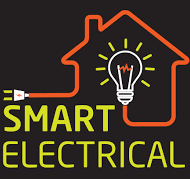SMART ELECTRICITY, IS A WAY OF FOOLING THE PEOPLE
Smart electricity is a superior product from the Indonesian state electricity company which is currently used by almost all levels of society.
 Smart electricity is a superior product from the Indonesian state electricity company which is currently used by almost all levels of society.
Smart electricity is a superior product from the Indonesian state electricity company which is currently used by almost all levels of society. Even though its existence is so popular, it turns out that not all people want to use it.
What's with this smart electricity?
From a number of issues developing in society, there are several reasons why people don't really like using smart electricity products from state electricity companies.
- The cost of electricity tokens is more expensive than regular meters
- The electricity token must always be present if you want the electricity to be on continuously
Indeed, at the beginning, when smart electricity began to be intensively promoted, people flocked to immediately replace their home electricity meters with this type of electricity.
However, over time, they finally realized that if they calculated the token cost, it was still higher compared to paying a regular metered electricity bill. So what is meant by smart electricity, because in reality it is not smart, it actually gives the impression of being stupid.
Indonesia's electricity situation
If you pay attention to the statistical data released on the official PLN website, it is known that electricity production in Indonesia reached 183,819.03 GWh. This figure is the total electricity produced by the state electricity company.
However, because the number of electricity customers continues to increase every year, PLN's electricity production is certainly not sufficient. As a solution, electricity capacity was increased by means of lease purchase from private parties amounting to 124,183.27 GWh.
The latest statistical data until 2023, the number of PLN electricity customers has reached 85 million customers, or 30 percent of Indonesia's total population of 285 million.
As for 2024, the latest update is that the number of electricity customers will reach 88.4 million.
This means that there is still an electricity crisis in Indonesia of 40.32% because PLN still needs to buy it from private parties. If PLN is still overwhelmed to serve 30 percent of Indonesia's population, it is certain that new customers will be on a long waiting list.
So, because there is an electrical energy crisis, it is necessary to save on electrical energy usage. This is done by releasing smart electrical products which are claimed to be able to save energy consumption by up to 19 percent.
So, it turns out that smart electricity is only from the producer's side as the owner, but from the consumer's side it is not accurate to say that it is smart electricity because it actually results in wasted costs due to always buying electricity tokens.
Government electricity subsidies
The smart electrical technology prototype is designed to be able to save electrical energy on a household scale. Actually, there is a good side to using this smart electricity, namely.
1. People are invited to save on electricity in their homes
2. Can reduce the potential risk of fire
3. Help the government to reduce the burden of electricity subsidies
In this third point, smart electricity becomes a golden bridge that accelerates the decline in electricity subsidies.
Quoting from the cnbc.com page, in the last 7 years from 2013 to 2021, electricity subsidies by the government have continued to decline.
Initially in 2013 it reached 101 trillion, in 2014 it was only 99.3 trillion and finally in 2021 it was 53.59 trillion.
It is suspected that the government's policy of reducing electricity subsidies is for reasons of diverting the budget to other productive sectors.
However, how long can this policy of reducing electricity subsidies last, considering that every year the number of new customers continues to increase.
Let's just wait for the results, at least for now the good intentions of the government in power to improve the welfare of society can be proven through the transfer of smart electricity technology.
Read also
Tags:
TECHNO

